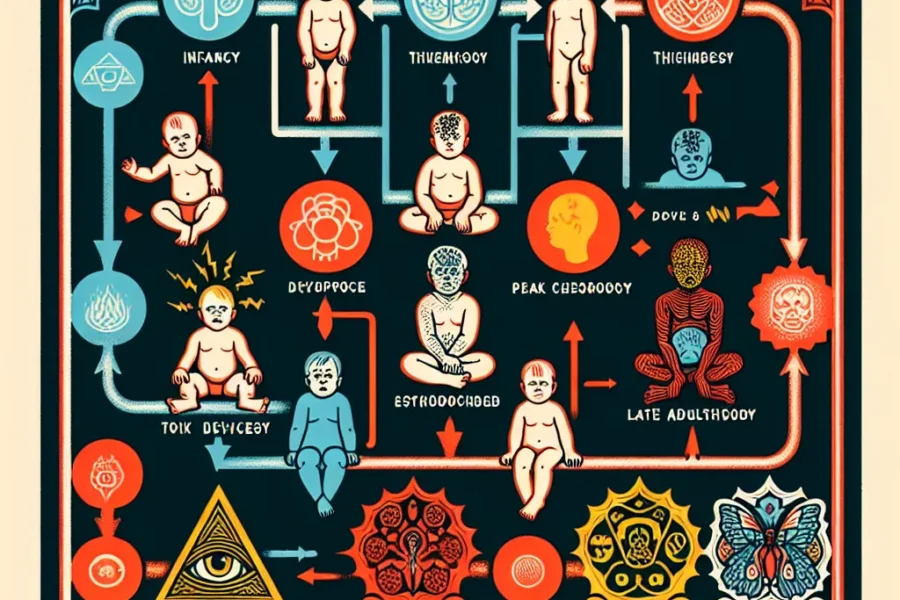Karen Horney, a distinguished psychoanalyst and psychologist, has had a significant impact with her groundbreaking approach towards understanding neurotic behavior. Her unique perspective not only critiqued but expanded upon the traditional Freudian notions of psychoanalysis, bringing forth a more nuanced and humanistic approach to the study of neuroses.
At the heart of Horney’s understanding of neurosis was the belief that such behaviors are a result of disturbed interpersonal relationships and unmet emotional needs, rather than merely the outcomes of sexual conflicts as posited by Freud. Horney posited that neuroses stem from basic anxiety, which occurs in a child when they feel helpless against a world perceived as potentially hostile. This foundational anxiety leads to the development of certain strategies for coping with the stress of life, which Horney termed as “neurotic needs”. These needs are not inherently problematic; it is when they become compulsive that they distort a person’s ability to live a fulfilling life.
Horney identified ten neurotic needs that represent these coping strategies, which include needs for affection and approval, a dominant partner, power, exploitation, prestige, admiration, achievement or ambition, self-sufficiency, perfection, and restrictions on one’s life. According to her theory, these needs arise from attempts to combat the basic anxiety experienced in childhood, and when overused or rigidly adhered to, result in neurotic behavior.
Furthermore, Horney developed the concept of neurotic trends, categorizing these needs into three broad coping strategies: moving toward people (compliance), moving against people (aggression), and moving away from people (detachment). Each trend involves its own way of managing anxiety and conflicts, and individuals may use one or a blend of these approaches, which become the neurotic solutions to interpersonal relationships.
Horney also placed significant emphasis on the concept of the “real self” and the “idealized self.” The real self is who a person actually is, with their own set of spontaneous feelings, interests, and desires, whereas the idealized self consists of an image of what a person thinks they should be. The neurotic person becomes trapped in a never-ending pursuit of their unattainable ideal self, generating a constant state of self-hatred and anxiety. This dissonance between the real and ideal selves is a core factor in the development of neurotic symptoms.
Additionally, Horney spoke against the Freudian concept of penis envy, proposing instead the notion of womb envy, where men experience feelings of inferiority and jealousy over women’s reproductive capabilities. She believed this could lead to men striving for success and power in other domains as compensation for their inability to bear children, reflecting a broader theme in her work of societal influences shaping individual psychology.
Throughout her career, Horney continued to evolve her theories, emphasizing the importance of cultural and environmental factors in the development of personality, and thus neurosis. She considered socio-cultural conditions, such as the pressures of a competitive society, to be determinants of individual psychology – a significant departure from Freud’s biologically oriented analysis.
Karen Horney’s legacy in the understanding of neurotic behavior is substantial. Her insights have informed therapeutic approaches, allowing psychotherapists to better identify and treat neurotic patterns in their clients. By focusing on the social and cultural dimensions of psychological issues, Horney’s theories have also paved the way for further research and discussions on the impact of external factors on mental health. Her holistic perspective acknowledges the complex interplay of internal conflicts and external pressures in shaping neurotic behaviors, offering a compassionate and empathetic framework for therapy.
For individuals struggling with neurotic tendencies, Horney’s theories present a path to self-understanding and growth. The therapeutic process informed by her approach encourages individuals to explore their real selves, confront the disparities with their idealized selves, and move towards a more integrated and authentic existence. The understanding of neurotic needs and trends can provide individuals with clarity on their patterns of behavior and the emotional roots underlying them. By addressing these factors with honesty and self-compassion, mitigating the grip of neuroses is attainable.
Moreover, Horney’s emphasis on societal contexts underscores the importance of considering environmental factors in mental health interventions. Mental health professionals can leverage her insights to better address the societal pressures that contribute to the development of neurotic behaviors, advocating for systemic changes that could promote psychological well-being.
In conclusion, Karen Horney’s approach to understanding neurotic behavior laid the groundwork for a compassionate and comprehensive treatment of mental health issues. Her progressive ideas challenged the status quo and enriched the field of psychoanalysis with reinforcing the significance of sociocultural, environmental, and individual factors in mental health. By recognizing that neuroses are a product of unfulfilled relationships and thwarted growth toward one’s real self, Horney provided a humanistic and holistic perspective that continues to resonate in today’s psychological practices, highlighting the profound connection between our social environments, our striving for self-realization, and our mental well-being. As research and therapy continue to evolve, the principles of Horney’s work remain a testament to her innovative spirit and her lasting contribution to the understanding of neurotic behavior.



Leave a Comment